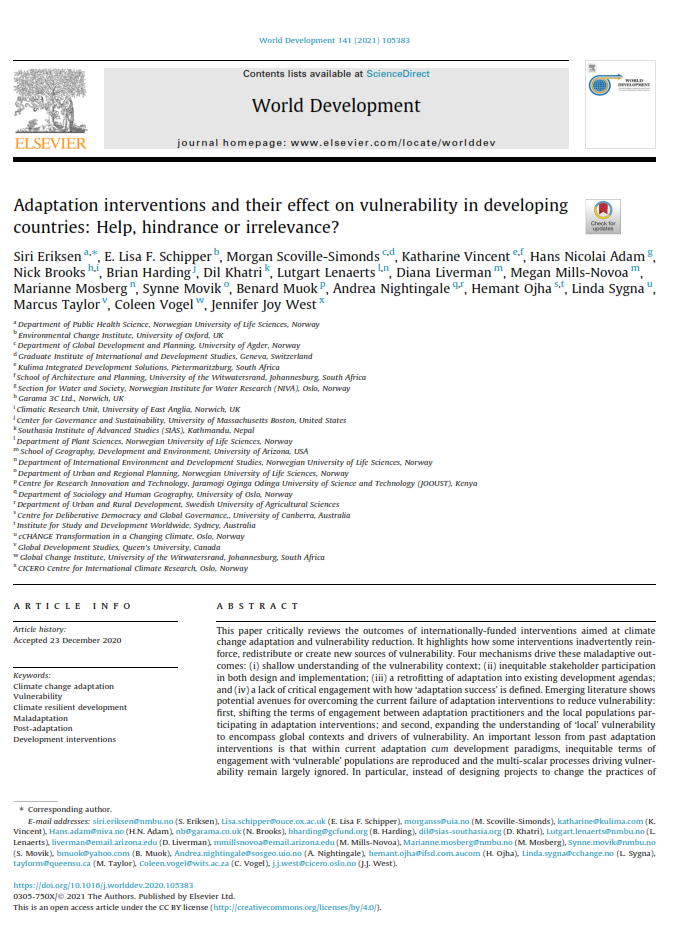 A new paper "Adaptation interventions and their effect on vulnerability in developing countries: Help, hindrance or irrelevance?" has just been published in the journal World Development. The paper, led by Siri Eriksen with an author team of 20, including Katharine Vincent, uses a review of 33 empirical studies, nearly 200 papers, and the insights of the authors to highlight how some interventions inadvertently reinforce, redistribute or create new sources of vulnerability. These maladaptive outcomes result from shallow understanding of the vulnerability context; inequitable stakeholder participation in both design and implementation; a retrofitting of adaptation into existing development agendas; and a lack of critical engagement with how ‘adaptation success’ is defined. Overcoming these shortcomings requires shifting the terms of engagement between adaptation practitioners and the local populations participating in adaptation interventions; expanding the understanding of ‘local’ vulnerability to encompass global contexts and drivers of vulnerability; and promoting learning processes within organisations and with marginalised populations. It concludes by asking whether scholarship and practice need to take a post-adaptation turn akin to post-development, by seeking a pluralism of ideas about adaptation while critically interrogating how these ideas form part of the politics of adaptation and potentially the processes (re)producing vulnerability.
A new paper "Adaptation interventions and their effect on vulnerability in developing countries: Help, hindrance or irrelevance?" has just been published in the journal World Development. The paper, led by Siri Eriksen with an author team of 20, including Katharine Vincent, uses a review of 33 empirical studies, nearly 200 papers, and the insights of the authors to highlight how some interventions inadvertently reinforce, redistribute or create new sources of vulnerability. These maladaptive outcomes result from shallow understanding of the vulnerability context; inequitable stakeholder participation in both design and implementation; a retrofitting of adaptation into existing development agendas; and a lack of critical engagement with how ‘adaptation success’ is defined. Overcoming these shortcomings requires shifting the terms of engagement between adaptation practitioners and the local populations participating in adaptation interventions; expanding the understanding of ‘local’ vulnerability to encompass global contexts and drivers of vulnerability; and promoting learning processes within organisations and with marginalised populations. It concludes by asking whether scholarship and practice need to take a post-adaptation turn akin to post-development, by seeking a pluralism of ideas about adaptation while critically interrogating how these ideas form part of the politics of adaptation and potentially the processes (re)producing vulnerability.
